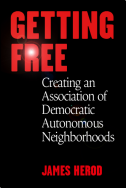
|
|||||||
Three Earlier Books Selected Papers Bibliography (2002) Bits & Pieces Short Takes on Flawed Books Nothing Posted Here Yet Movie Notes Nothing Posted Here Yet Reading Notes Nothing Posted Here Yet
Selected Correspondence Nothing Posted Here Yet |
|||||||
|
|||||||
Essays by other authors Nothing Posted Here Yet Sort by Books by other authors Nothing Posted Here Yet Sort by |
|||||||
Selected Papers, 1968 to 1997
Date   | Title   |
| July 1971 | Who Defines the National Interest? The Dispute about the Pentagon Papers |
| June 1972 | Toward a Proletarian Theory of Democracy |
| July 1970 | Three Interlocking Strategies |
| November 1972 | The Presidential Election of 1972 |
| April 1973 | The Nationalities Question |
| July 1974 | The Merits and Limitations of Sartre's 'Materialism and Revolution' |
| October 1975 | The Fight at Unitron |
| February 1980 | That's Your Opinion |
| September 1969 | Statement of Purpose |
| November 1971 | Some Thoughts on the Telos Conference |
| November 1971 | On the Question of How the Left Can Function on the National Level |
| October 1971 | On Sectarianism and Splits |
| August 1982 | Notes on the Idea of Direct Democracy |
| November 1971 | Letter to the Liberated Guardian |
| April 1970 | Is There a Ruling Class in the United States? |
| January 1971 | How Commercial Films Contain the Radical Movement |
| May 1970 | Hierarchy, the Socialist Revolution, and Problems of Strategy |
| April 1974 | Four Way Criticism |
| October 1972 | Establishing the Network. Three Working Papers |
| November 1970 | Draft Constitution |
| August 1969 | Cuba Notebook |
| July 1985 | Comments on the Boston Typographical Union |
| August 1968 | A Seminar on Restructuring American Society |
| July 1979 | A Note on the Problem of Evil |
| August 1970 | A Case Study of Elitism |
